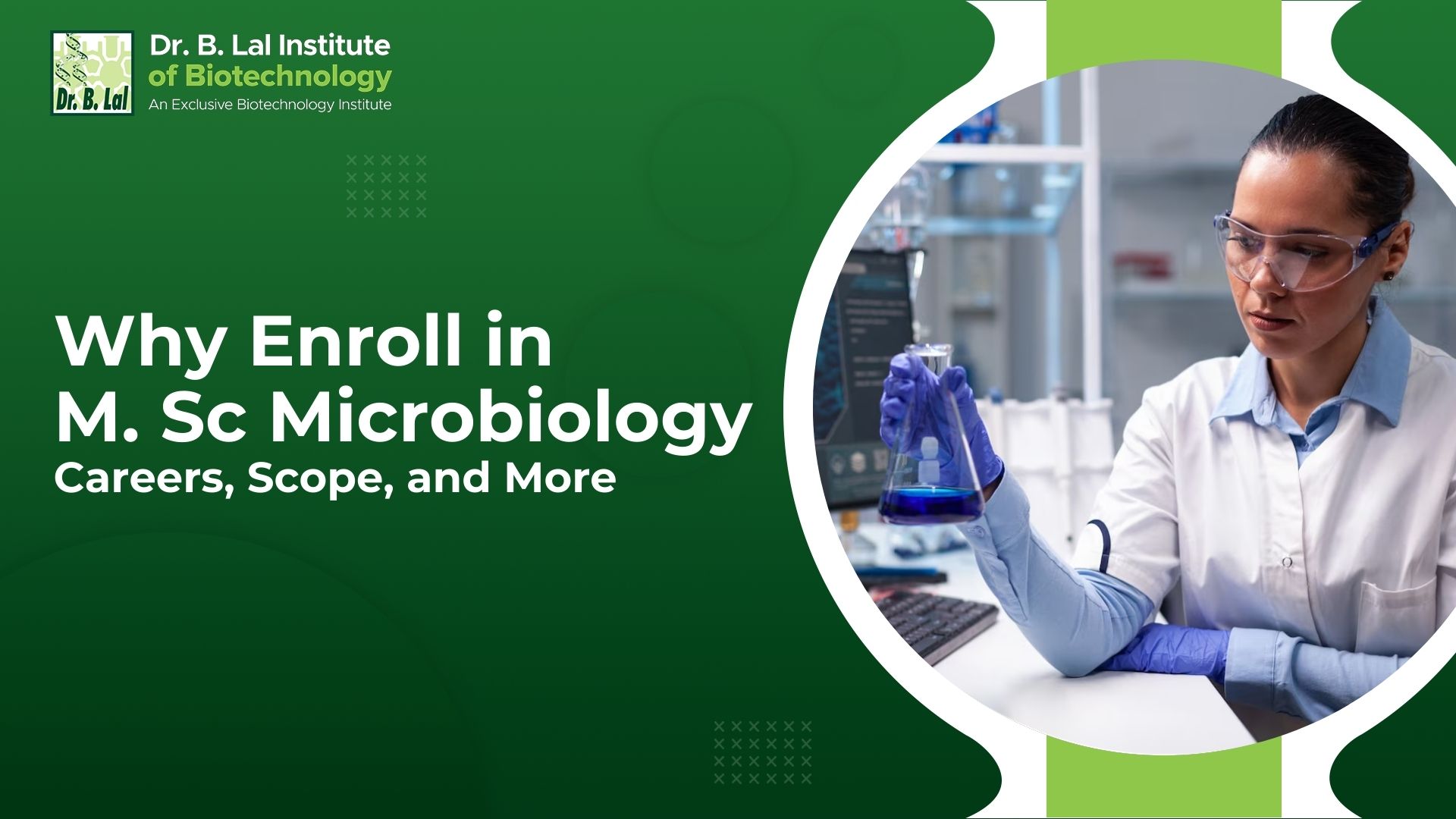
Why Enroll in M.Sc Microbiology: Careers, Scope, and More
Introduction
Microbiology, the study of microorganisms, is a fascinating field that impacts diverse areas like healthcare, agriculture, and environmental science. Enrolling in an M.Sc in Microbiology offers students the chance to delve deep into this vital science, exploring its applications and preparing for a wide range of rewarding careers.
Why Choose an M.Sc in Microbiology?
Microbiology is at the forefront of many scientific advancements, driving innovations that address some of the world’s most critical challenges. Here’s why you should consider pursuing an M.Sc in Microbiology:
- Diverse Applications: Microbiology plays a crucial role in various sectors, including medicine, pharmaceuticals, agriculture, and environmental management. This versatility opens up numerous career opportunities for graduates.
- Impactful Work: Microbiologists work on projects that have a direct impact on public health, such as developing antibiotics, vaccines, and other treatments. You’ll be part of efforts that can save lives and improve the quality of life globally.
- Growing Field: With increasing concerns over global health issues, antibiotic resistance, and environmental sustainability, the demand for skilled microbiologists continues to grow. An M.Sc in Microbiology equips you with the knowledge and skills to meet this demand.
What to Expect During the Course
An M.Sc in Microbiology offers a blend of theoretical knowledge and practical experience. Here’s a breakdown of what you can expect from the program:
- Core Subjects: The curriculum typically includes subjects such as Immunology, Virology, Bacteriology, Mycology, and Molecular Biology. These courses provide a solid foundation in understanding microorganisms and their interactions with humans, animals, and the environment.
- Laboratory Work: A significant part of the program involves hands-on laboratory work, where you’ll learn techniques such as microbial culturing, staining, and microscopy. This practical training is crucial for developing the skills needed in research and industry settings.
- Research Opportunities: Many programs offer the chance to participate in cutting-edge research projects, allowing you to apply your knowledge to real-world problems. This experience not only enhances your understanding but also adds value to your resume.
Career Opportunities After M.Sc in Microbiology
Graduates with an M.Sc in Microbiology have a broad range of career options in both the public and private sectors. Here are some of the potential career paths:
- Healthcare and Pharmaceuticals: Work as a clinical microbiologist, quality assurance analyst, or research scientist in hospitals, pharmaceutical companies, and diagnostic laboratories.
- Environmental Science: Contribute to environmental monitoring and management by working in areas such as water quality testing, waste management, and bioremediation.
- Agricultural Biotechnology: Apply your skills to improve crop yields and combat plant diseases by working as a research scientist or biotechnologist in agricultural firms.
- Academia and Research: Many graduates choose to further their studies with a Ph.D. or work in academic and research institutions as lecturers, research associates, or project coordinators.
Scope of Microbiology
The scope of microbiology is expanding rapidly due to advances in technology and a growing awareness of the importance of microorganisms in health, industry, and the environment. Here are some areas where microbiologists are making a significant impact:
- Disease Control and Prevention: Microbiologists are crucial in the fight against infectious diseases, developing new diagnostic tools, treatments, and vaccines.
- Biotechnology Innovations: Microbiologists contribute to the development of new technologies that enhance food production, environmental sustainability, and industrial processes.
- Environmental Protection: The role of microbiologists in environmental science is becoming more critical as the world seeks sustainable solutions to pollution, climate change, and resource management.
Skills Developed in an M.Sc in Microbiology
- An M.Sc. in Microbiology equips students with essential skills that open doors to various sectors, from healthcare to environmental science. These include:
- Analytical Skills: The program fosters the ability to conduct and interpret experiments, providing insights into biological processes.
- Problem-Solving: Graduates learn to create innovative solutions for challenges in fields like healthcare, agriculture, and environmental science.
- Communication: Students gain proficiency in effectively presenting research findings through reports and presentations.
- Attention to Detail: Precision in research ensures the validity and accuracy of scientific results.
At Dr B. Lal Institute of Biotechnology (BIBT), students also benefit from advanced biotechnology training programs and robust placement opportunities, ensuring a successful career start.
Conclusion
Enrolling in an M.Sc. in Microbiology is a smart choice for those passionate about exploring the microscopic world and its impact on life. This comprehensive program prepares students for exciting careers in healthcare, research, environmental science, and biotechnology. With the ever-growing relevance of microbiology, your future in this field promises to be both fulfilling and impactful. Take the first step towards a dynamic career with Dr. B. Lal Institute of Biotechnology (BIBT). Our M.Sc. Microbiology course combines cutting-edge training and hands-on experience, ensuring you're fully equipped for industry success. Enroll now and unlock a world of opportunities!
To Know More - M.Sc. Microbiology Academics at BIBT- Discover the benefits of enrolling in an M.Sc in Microbiology. Learn about career opportunities, industry scope, and the unique skills gained in this dynamic field.
Made it this far? That means you're curious—and we love that! Ready to test your passion for biotechnology? Click below to find out 👇🏻
Biotechnology Aptitude Test




Your email address will not be published. Required fields are marked *